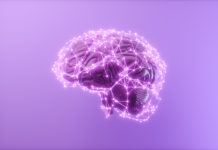Research at the University College London (UCL) has revealed promising findings regarding the efficiency of mindfulness and cognitive behavioural therapy (CBT) in helping menopause-related mood symptoms, memory issues and concentration problems
As women around the world face the challenges of menopause, this study provides some reassurance by emphasising the importance of psychosocial interventions in improving menopause symptoms and their overall well-being.
The impact of different kinds of therapies
30 studies took place involving 3,501 women in 14 different countries. All 30 studies were divided into three groups to examine the effects of different therapies on mood, cognition and quality of life.
- Ten studies looked into the impact CBT-based interventions on menopausal symptoms.
- Nine studies provided Mindfulness-Based Interventions (MBI)
- Eleven studies used Acceptance and Commitment Therapy (ACT), group counselling, marital support, health promotion coaching, and emotional freedom techniques.
All of these interventions were successful in improving quality of life. However, CBT and MBI showed improvement in anxiety and depression. CBT and group therapy also showed improvements in reducing memory and concentration difficulties, and CBT proved to be the most cost-effective when it comes to managing menopause symptoms.
The non-physiological symptoms of menopause
By focusing on the psychological and cognitive aspects of menopause rather than just the physiological symptoms, healthcare providers can offer more comprehensive and tailored support to women during this stage of life.
Senior author Dr Roopal Desai (UCL Psychology & Language Sciences), said: “GPs and healthcare providers often struggle to know what to offer beyond medical treatment. This research will help give GPs and patients more options.”
The findings contribute to ongoing efforts to destigmatize menopause symptoms and raise awareness about the diverse experiences women undergo during this transition.
What can be done to support women?
By recognising the impact of menopause symptoms on mental health and cognition, society can foster a more supportive and understanding environment for women during this phase of life.
Healthcare professionals and community organisations are encouraged to prioritise menopause management as a public health issue. By incorporating evidence-based psychosocial interventions into healthcare guidelines and support programs, the quality of life for women during menopause can be improved to promote their overall well-being.
Co-author and master’s graduate Zishi Li (UCL Psychology & Language Sciences) said: “This study provides encouraging evidence to support the use of psychosocial interventions for managing non-physiological menopausal symptoms. This is in line with the NICE Menopause guidelines, updated in 2023 and currently in the consultation phase, which promote CBT as a treatment option.”
As our understanding of menopause and its challenges deepen, it is important to adopt a thorough approach that addresses the nature of menopause.











